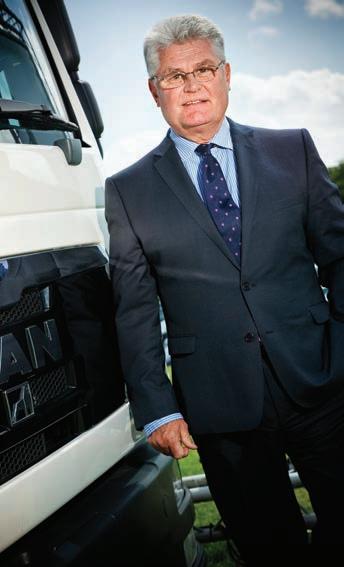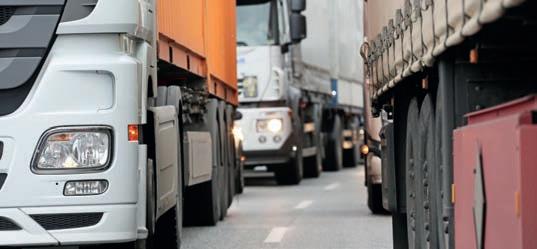
2 minute read
‘Time to ditch this net zero fantasy’
Former MAN Truck and Bus chief executive Des Evans (pictured) has launched a scathing attack on the government’s plans to phase out diesel HGVs from 2035, insisting operators will simply refresh their existing fleets as close as possible to that date and then run them for at least another 10 years.

Advertisement
He told MT the global decarbonisation agenda “goes above the heads” of most operators and is “the automotive equivalent of veganism”, forcing truck makers to produce zero-emission vehicles at prohibitive prices despite little market appetite.
“The majority of those operating 18-tonne trucks and above will not go electric for a generation, and will still have diesel vehicles for the next 10-25 years,” he said. “There will be a massive rush to buy diesel vehicles just before the deadline.
“The biggest issue facing HGV fleet operators is whether decarbonisation is reality or fantasy,” he added. “About 65% of all trucks on the road are 18 tonnes and above. Operators won’t bother with electric. It’s going to cost them big time, and why do it when you’re already under pressure? The economics just don’t stack up – it’s unworkable.”
Evans said most operators struggle to monitor the fuel consumption of their fleets, which is about 40-45% of their overall costs: “If they could control it by half a mile per gallon, they would double their bottom-line profitability,” he claimed. “So when you talk to them about decarbonisation, they wouldn’t have a clue what we were talking about.”
Evans went on to argue that the widespread “demonisation of diesel” amid the drive to decarbonise was inaccurate and misleading.
“We should stop listening to Swedish truants like [environmental activist] Greta Thunberg. It amuses the hell out of me that so-called leaders of the world – the UN – parade a 20-year-old Swedish truant as if she’s got the answers. It’s just pathetic.
“The whole thing is clouded in really poor information about the performance of the current advanced diesel engines, and the truck manufacturers are being forced into this,” he continued. “It would take 100 44-tonne tractor units running on Euro-6 diesel engines to emit the same emissions as one Euro-4 vehicle from 15 years ago.
“You can reclassify them as air fresheners because the air coming out is cleaner than when it went in.”
Evans added that the biggest drawbacks facing operators remain cost, range, weight and infrastructure.
“The average price of a 44-tonne tractor unit is £120,000,” he said. “An electric replacement would be £360,000. It’s also two tonnes heavier and won’t have more than a 400-mile range.

“Last year about 37 billion tonnes of CO2 was emitted globally. About 23% of it comes from transport, but 80% of it comes from four countries – India, China, Russia and the USA.
“The UK emitted 360 million tonnes last year. That’s 1%. If we went net zero tomorrow it wouldn’t make one bit of difference to what’s happening on the planet. People have to get more realistic.”







